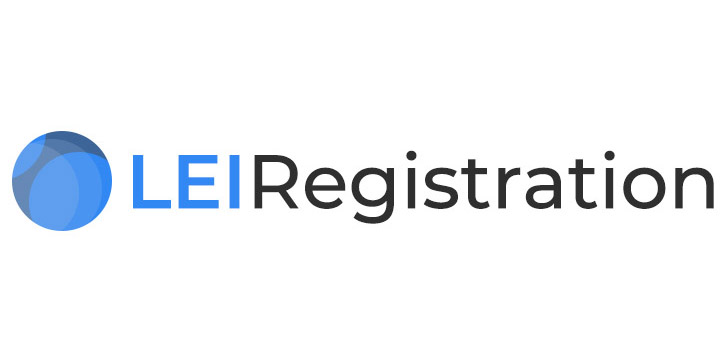Workshops
The workshops will run on Tuesday, 23rd of August 2016
Workshop 1: Design and conduct of high quality large-scale randomised controlled trials (RCT) of behaviour change interventions
Runs: 09:00 - 17:00
Facilitators: John Norrie (Director of CHaRT), Marijn de Bruin (Prof. Health Psychology), Graeme MacLennan (Senior. Statistician), Samantha Wileman (QA Manager of CHaRT), Alison McDonald (Senior Trials Manager), Mark Forrest (Senior IT Manager), Kirsty McCormack (Research Manager), Ruth Thomas (Research Manager) & Seonaidh Cotton (Trials Manager); all from the Institute of Applied Health Sciences, University of Aberdeen
Description
This 1-day workshop will cover important aspects of design (morning) and conduct (afternoon) of behavioural change complex interventions RCT. It will be practical, drawing on real-life examples of how to design and conduct publicly funded multicentre pragmatic RCT applied to behavioural change interventions (of both patients and health professionals). The faculty comprises staff from CHaRT (a UKCRC registered Clinical Trials Unit) and the Aberdeen Health Psychology Group staff. The contributors included experienced trialists, health psychologists, trials methodologists, trial managers, statisticians, IT professionals - all the types of multiple disciplines required to design and deliver high quality behavioural trials.
The scale of a trial, together with excellent trial design and conduct, determine the impact of the evidence on policy and practice. We will address fundamental issues including selecting the right question, gaining network support, assessing the need for a trial (‘systematic’ review), pilot/feasibility work, writing impeccable grant proposals, creating resource/finance profiles, authorisations (ethics, regulatory approval), selecting the appropriate trial design elements, including populations, interventions, controls, and outcomes. These issues will be illustrated with real-life problems and solutions based on our extensive trials portfolio. There will be ample opportunity for delegates to discuss their own challenges in designing trials.
The afternoon session will focus on the conduct (i.e. actual delivery) of high quality trials of behavioural change interventions. Topics include turning grant proposals into Protocols, preparing sites; training study staff; randomisation procedures and other methods of reducing bias; study oversight (e.g. independent Trial Steering Committees) and study progress reports; day-to-day trial management; and preparing for the unexpected.
This workshop is aimed at those involved in behavioural change trials, and by participating delegates should gain valuable insights into the design and conduct of such complex intervention trials, thus improving their skills to undertake high quality studies that will improve human health.
Workshop 2: Using Acceptance and Commitment Therapy in Health Psychology settings-an experiential introduction
Runs: 09:00 - 17:00
Facilitator: Dr Nuno Ferreira (Clinical Psychologist) University of Edinburgh
Description
Acceptance and Commitment Therapy (ACT) is a novel contextual behavioural intervention model that uses processes of acceptance and mindfulness to enable behaviour change when this is in the service of valued living goals. In the past two decades an increasing amount of evidence has been gathered and reported on the usefulness of ACT based interventions in health psychology settings (e.g. chronic illness, smoking cessation, treatment adherence) (See Ruiz, 2010 for a full review). In the case of chronic pain, ACT has demonstrated such strong evidence that is now the most strongly recommended intervention for this condition by the Division12 of the American Psychology Association.
The Objectives of this workshop will be to provide participants with an introduction to:
1. the ACT conceptual model of psychopathology
2. the ACT model of intervention
3. how to adapt ACT to the health setting/population they are currently working with (or wish to work with)
Activities
This workshop will use a mix of didactic material and experiential content. Participants will be invited to experience some of the key ACT exercises and metaphors used in clinical practice from a personal perspective. Case-conceptualization exercises and small role-plays will also be used. Finally participants will also be encouraged to attempt to draft an ACT based intervention for their specific work context.
Workshop 3: How to write high impact papers and get them out for review
Runs: 09:00 - 17:00
Facilitator: Prof James Coyne (Prof. Health Psychology) UMCG, Netherlands
Description
To Provide Innovative Strategies for Writing Scientific Papers, Including Creative Use of New Internet Resources, and Responding to Reviews, Including Rejection.
Objectives
(1) Familiarize participants with new electronic resources and the creative purposes to which they can be put.
(2) Identify how participants can integrate writing into their everyday life and lifestyle.
(3) Provide participants in guided practice in crafting interesting, compelling stories and therefore papers.
(4) Provide recognition of what needs to be done after submitting a manuscript, respond to reviews, decide whether to appeal rejections, and manage publicity for newly published papers.
Rationale
Scientific writing is undergoing dramatic changes. Many papers are rejected without being sent for peer review. Yet other papers appear within weeks of submission. Simply reporting good science is insufficient to ensure acceptance. Rather, manuscripts, starting with the cover letter, title, and abstract, must inspire interest and tell a persuasive story. Freely available internet resources allow writers to keep updated on the literature, but also avoid unintentional plagiarism, ensure inclusion of key citations, identify potential collaborators, and select the best journals and reviewers. Finally, authors need to be alert to post-submission responsibilities; respond strategically to reviews including a rejection; and use social media for publicity to increase early citations.
Participants
Graduate and PhD students contemplating or actively involved in writing; postdocs and junior and senior faculty
Activities
Full day of powerpoint presentations and demonstrations, highly interactive sessions between participants and the presenter in crafting storylines for cover letters and responses to reviewers, picking titles and writing abstracts. Personalized feedback will be provide to participants wherever they are in the writing process.
Workshop 4: Research Methods to modify the Illness Perception Questionnaire Revised (IPQ-R) for specific patients groups
Runs: 13:00 - 17:00
Facilitators: Prof Rona Moss-Morris (Prof. Health Psychology), Dr Sam Norton (Lecturer in Research Methods and Statistics) & Dr Lyndsay Hughes (Lecturer in Health Psychology), all Kings College London.
Description
The growth in research into the Common Sense Model (CSM) over the past two decades has been attributed in part to the development of the Illness Perception Questionnaire (IPQ) and its derivatives, IPQ-Revised (IPQ-R) and Brief IPQ. These validated psychometric measures were designed to assess generic patients’ beliefs about their illness. Despite their popularity, these generic measures do not always adequately assess the specificity of patients’ perceptions and management of their illness. This specificity is important when designing the content of tailored intervention to alter illness representations and related behaviours. The IPQ was always intended as a measure which could be adapted to particular illnesses. However, no formalised method has been provided as to how to do this. The aim of this workshop is to provide a mixed methods approach to adapting and validating illness specific IPQs. The methods discussed are also applicable to the development and validation of psychometric instruments in general.
Specifically we will
1. Illustrate the use of semi-structured interviews to assess illness beliefs and associated behavioural coping.
2. Describe how inductive and deductive qualitative methods can generate new illness specific items.
3. Apply the use of think allowed methods to assess the face validity of the modified questionnaire and if necessary amend or remove items.
4. Provide an overview of questionnaire validation using factor analytic and item response theory methods.
Throughout the workshop we will draw on our recent work developing modified IPQ-Rs for women taking tamoxifen following breast cancer treatment and for patients with persistent atrial fibrillation. Participants will have the opportunity to join in discussion and try out techniques such as think allowed methods. Group discussion will include how more specified versions of the IPQ-R can be used to develop future interventions to improve outcomes such as quality of life and adherence.
Workshop 5: Making an impact on health in low-income countries. What should we research or do? CANCELLED
Runs: 13:00 - 17:00 CANCELLED
Facilitators: Lucie Byrne-Davis (Lecturer in Assessment and Psychometrics) & Dr Jo Hart (Senior lecturer in communication), both University of Manchester.
Objectives
This workshop will bring together participants who are currently working on implementation, policy and / or research in or related to low and middle-income country (LMIC) health and health services. We would encourage participants who are not currently working in LMIC but who want to, or who think their work has particular relevance. The workshop objectives are to create a community of health psychologists working in LMIC and to develop a position paper outlining:
1. The contribution that health psychology is making and could make to health and health services in LMIC
2. The short and medium term goals for the participants and their colleagues in increasing the contribution that health psychology is making
3. The highest priority research questions for health psychologists working in LMIC
4. A list of activities for participants and their colleagues to engage in in order to bring about the short and medium term goals and to begin to answer the research questions
Activities
1. Participants will be encouraged to give brief summaries of their work to share with the group (not a prerequisite for attendance).
2. Conveners will facilitate a series of focused activities including small group discussions and a research prioritization exercise that will result in
a. A list of overarching contributions (including implementation, research and policy).
b. A set of short and medium term goals to begin to achieve increased contributions.
c. A set of high priority research questions
3. Participants will create a list of activities and will explore the idea of creating an online community to support these activities over the next 12 months.
Workshop 6: Engaging Policy with Research: Building a Bridge over Troubled Waters
Runs: 13:00 - 17:00
Facilitator: Prof Julie Barnett (Prof. Health Psychology), University of Bath
Description
The objectives of this workshop are:
a) To provide insight on the current national and international health policy landscape.
b) To identify and discuss the benefits and challenges associated with working at the research-policy interface and influencing policy with research.
c) To provide practical strategies, tools and techniques for engaging policy audiences with research.
The workshop will start with a brief overview of key health policy priorities in the UK and globally and the importance of research in informing policy and practice decisions. We will then raise and discuss some of the main benefits and challenges of getting research into policy, such as aligning research and policy timelines, understanding what policy makers want from research and, perhaps most importantly, understanding policy making contexts and the role that evidence can play.
Participants will then be engaged in a variety of activities designed to identify and communicate the relevance of their research for policy, build relationships and co-produce research with policy makers and practitioners. The workshop will be led by Professor Julie Barnett and Dr Hannah Durrant from the University of Bath Institute for Policy Research (IPR). Julie is a health psychologist, with expertise in risk appreciation, risk communication, the development and use of health technology. Hannah leads the research strategy of the IPR, her focus is on interdisciplinary research applied to policy making and practice settings. They have joint research interests and projects investigating policy and public engagement with new forms of data.



